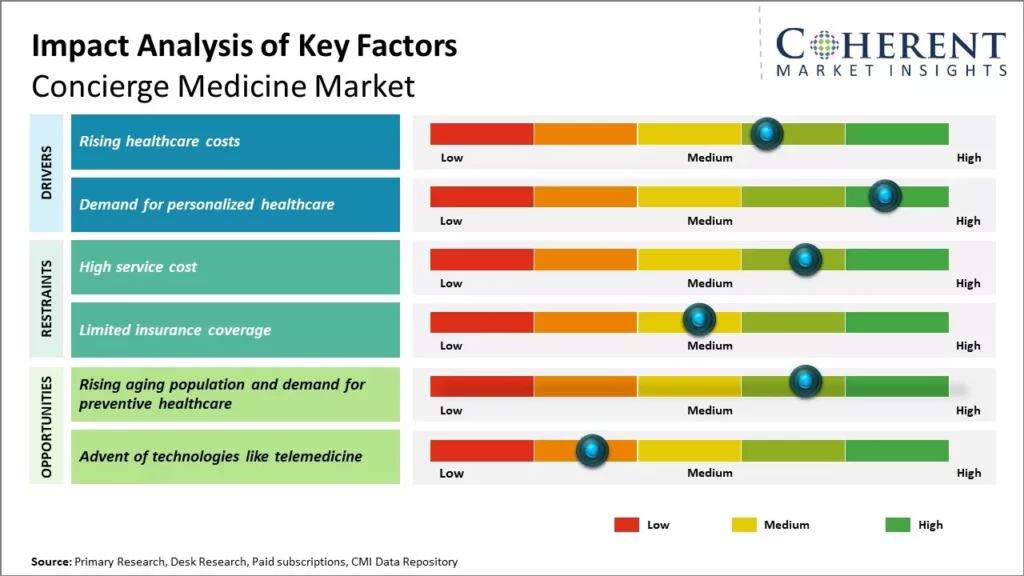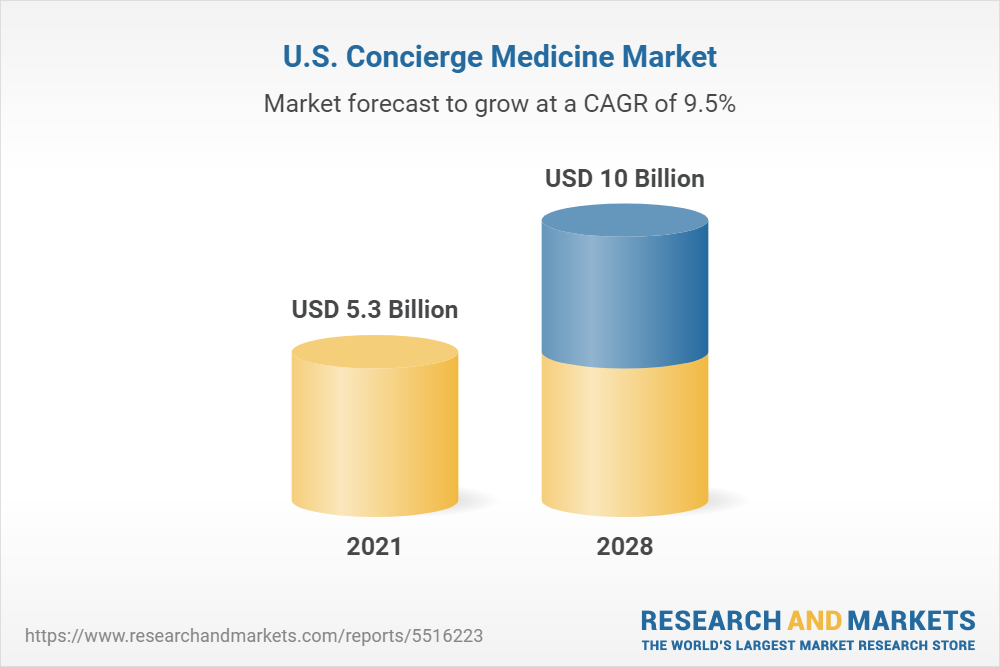You’ve heard the buzz around concierge medicine—perhaps it’s even caught your eye as a promising alternative to the long waits and rushed appointments of traditional healthcare.
It’s enticing, isn’t it? The promise of a healthcare system that seems to wrap around your needs rather than squeezing you into its schedule, with medical specialties that go beyond primary care.
But as attractive as it sounds, there are a few problems with concierge medicine to consider before opting for such a service.
As experts in the field, we’re here to reveal the most common concierge medicine pros and cons. We’ll also clarify the complexities and show you how to make the most informed choice in your healthcare journey.
Problems with Concierge Medicine
Beneath the surface of swift appointments and direct access to healthcare professionals lies a complex array of challenges and misconceptions. Here are some of the main concierge medicine disadvantages you should be aware of:
1. Membership Fee and Out-of-Pocket Costs
The allure of membership medicine and personalized healthcare comes with its own price tag—a membership fee that often feels prohibitive. Typically ranging between $2,000 to $50,000 annually, these fees allow concierge practices to maintain a significantly reduced patient panel.
However, while the membership fee covers the cost of enhanced access and personalized care, it’s not a panacea for all healthcare expenses. Patients must still navigate additional out-of-pocket costs for services not included under the concierge umbrella-like specialist visits, prescriptions, and hospital stays—much as they would with a traditional primary care provider.
Pro Tip: Although not all concierge fees are eligible for payment through HSA and FSA accounts, many patients find they can use them to offset some concierge medicine costs. Additionally, your existing health insurance is expected to operate just as it would in a conventional setting, covering some of the additional healthcare expenses that arise outside the concierge plan.
2. Challenging Insurance Billing
The reality of insurance billing is that transparency is rarely the norm, and wrapping one’s head around how concierge medicine works with insurance is no easy feat. The process involves endless phone calls, vague responses, and convoluted policies that can leave you more baffled than informed.
When it comes to concierge medicine, this complexity leads many practices to sidestep traditional insurance entirely. They shift towards a model where the bulk of your care is covered under a flat membership fee. This fee liberates both doctor and patient from the tyranny of pre-approvals and copays, empowering you to use your healthcare dollars as you see fit, without an intermediary.
However, some concierge services still require traditional insurance for external services, and limitations on accepted carriers can restrict patient options.
Pro tip: Paying out of pocket for services like lab work can often be cheaper than using insurance. This approach doesn’t just save money—it clarifies exactly what you’re paying for.
3. Shortage of Qualified Concierge Practices
Finding a concierge practice with open slots for new patients is challenging. The scarcity of concierge doctors in certain regions amplifies this issue, making it difficult for interested individuals to access these services.
Despite the growing popularity of concierge medicine, the reality is that the number of practices is still not enough to meet the demand. This is especially true in less urbanized areas, where concierge options are not just limited but sometimes non-existent. Patients often find themselves on waiting lists, biding their time until a spot opens.
Pro Tip: Don’t limit your search to just your immediate area. Many concierge practices offer telehealth services, which can extend the reach of high-quality concierge primary care to patients far beyond the physical location of the practice.
4. Lack of Accessibility While Traveling
With its commitment to readily available healthcare, the personal touch of concierge medicine is undoubtedly its strongest selling point.
However, this model sometimes faces limitations when it comes to accessibility while traveling. Traditional concierge services are often optimized for local or regional access but may not extend the same level of care when patients are away from home. This can be a significant concern for those who travel frequently for business or leisure, as they may find it challenging to receive the same level of care, especially in urgent situations.
Pro Tip: When selecting a concierge medical service, consider those that are designed to bridge the gap when you are away from home, ensuring continuous care through virtual consultations and digital health monitoring. This can be a crucial factor in maintaining the continuum of care wherever you are, making your investment in concierge medicine work harder for you.
5. Lack of Communication, Trust, and Transparency
In some concierge practice models, patients may find themselves speaking with different doctors on call retelling their health concerns rather than consistently interacting with a doctor who is familiar with their health history.
This inconsistency can undermine the trust and transparency that are hallmarks of concierge medicine, leaving patients feeling disconnected and less confident in the care they receive.
Pro Tip: When choosing a concierge doctor service, inquire about their model for continuity of care. Opt for practices that guarantee you will primarily see the same doctor or provide a small, dedicated team who are fully briefed on your health background.
6. Challenging Integration with Primary Care System
Patients sometimes experience difficulties when their concierge care needs to connect with traditional health services, such as when requiring referrals for specialist treatments or when navigating care continuity between different healthcare systems.
This disjointed interaction can lead to complications in managing overall health care efficiently, as the streamlined and private nature of concierge services doesn’t always align with the procedural and bureaucratic demands of the general healthcare system.
Pro Tip: To mitigate integration issues, choose a concierge practice that has established effective protocols for interacting with the broader healthcare network. Ensure they have a solid track record of coordinating with other healthcare providers and systems.

Concierge Medicine Pros: The Bright Side
Just like direct primary care with its pros and cons, concierge medicine presents challenges but offers significant benefits that continue to attract patients seeking a superior healthcare experience.
- Personalized healthcare and immediate response: Concierge personalized medicine ensures that medical services are tailored to each patient’s needs. Members benefit from almost instant access to their physicians, significantly reducing wait times and facilitating faster diagnosis and treatment.
- Longevity and wellness in addition to standard healthcare: More than just addressing immediate health issues, concierge doctors focus on long-term health and wellness. This proactive approach helps in preventing diseases and maintaining an overall healthier lifestyle, which can lead to increased longevity. This is especially the case for key corporate personnel and management teams, where regular executive physicals have several limitations.
- Extended examination time: Each patient receives more time during appointments, allowing for thorough examinations and discussions. This unrushed environment helps in building a detailed understanding of the patient’s health, fostering more accurate and effective care plans.
- Referrals and care coordination: Concierge practices excel in care coordination, managing referrals seamlessly and integrating care across multiple providers. This streamlined approach reduces the patient’s administrative burden and enhances the effectiveness of their overall healthcare experience.
Solutions to Improve Concierge Healthcare: Expert Insights
Here are some expert-driven strategies that address the main concierge medicine trends and challenges:
- Consider price/quality ratio: To make concierge medicine more accessible, practices should focus on balancing the cost of services with the quality provided. Ensuring that patients feel they receive value equivalent to or surpassing the fees is crucial.
- Maintain transparency, ethics, and compliance: Practices must uphold high standards of transparency about service offerings and fees, adhere strictly to ethical medical practices, and comply with healthcare regulations to build and maintain trust.
- Build a qualified and available medical team: Recruiting a diverse, highly skilled medical team and ensuring they are accessible to patients enhances service quality and patient satisfaction.
- Adopt telemedicine to enhance 24/7 accessibility: The future of concierge medicine lies in technology and innovation. By integrating state-of-the-art telemedicine technologies, concierge services can extend care beyond geographical boundaries, offering round-the-clock access to healthcare consultation. This is especially beneficial for patients who travel or reside in remote areas.
- Coordinate integration with insurance: Facilitating smoother coordination with insurance companies can help concierge practices manage claims more efficiently and clarify coverage details to patients, reducing administrative hassles.
- Facilitate integration with primary care systems: Healthcare differs in concierge medicine compared to direct primary care. Strengthening links with the wider primary care system ensures that concierge patients receive comprehensive care that complements the specialized services of concierge practices without overlap or gaps.
Extend the array of services to meet the demand: Expanding service offerings to include not just acute care but also preventive care, concierge wellness services, and chronic disease management can address more of the patient’s health needs.

Is Concierge Medicine Still Worth It?
Concierge medicine stands out as a compelling choice for those seeking more personalized and accessible healthcare than traditional settings offer.
But the real question isn’t simply whether concierge medicine is worth it but whether it aligns with your healthcare needs and expectations more effectively than traditional models.
The answer?
If you’re someone who values immediate access to your doctor, extended consultations that do not feel rushed, and a healthcare approach that is proactive rather than reactive, concierge medicine might just be the game-changer you need.
Leading concierge medical providers like WorldClinic have recognized the inherent challenges of concierge medicine and have innovatively addressed them to enhance service delivery.
By implementing robust solutions such as integrating advanced telemedicine, facilitating seamless insurance coordination, and extending comprehensive care services, these practices set themselves apart.
WorldClinic, for instance, goes beyond mere healthcare; it offers coordinated care encompassing personalized medical kits, direct access to elite physicians, and wellness optimization that traditional healthcare often fails to provide.
Discover the WorldClinic Difference in Concierge Medicine
While concierge medicine offers an elevated level of personalized care, it’s not without its challenges, including accessibility issues, potential legal issues and integration with traditional healthcare systems.
WorldClinic revolutionizes concierge medicine by integrating advanced technologies and robust solutions, setting new standards in personalized care. Accredited by URAC, our team of board-certified physicians is committed to excellence, offering a responsive and comprehensive healthcare experience that members praise.
Transform your healthcare with WorldClinic, where care is more than a service—it’s a partnership. Discover how our tailored approach can align with your health goals by connecting with us today.
Frequently Asked Questions
1. Why is Concierge Medicine Not Affordable to Everyone?
Concierge medicine typically involves a membership fee ranging from $2,000 to $50,000 annually, which covers personalized care and direct access to healthcare providers. This model sustains lower patient loads and higher service levels, which may be financially out of reach for some individuals compared to traditional insurance-based practices.
2. Is Cost the Biggest Problem with Concierge Medicine?
While cost is a significant barrier to wider adoption, it’s not the only challenge. Issues such as the integration with traditional healthcare systems and the uneven geographic distribution of practices also limit access to concierge medicine.
3. Does Concierge Medicine Contribute to Physician Shortages?
Concierge medicine requires doctors to manage fewer patients than in traditional settings, potentially intensifying the perception of physician shortages. However, this model can also attract more practitioners to the field due to better work-life balance and patient care conditions.
4. Is Concierge Medicine Available in All Areas?
No, concierge medicine is more commonly found in urban and suburban regions where the population can support the model’s cost structure. However, you’ll find fewer concierge practices in rural and underserved areas, often due to economic and logistical challenges.
5. Why Do Doctors Choose Concierge Medicine?
Doctors often switch to concierge medicine to escape the high-pressure environments of traditional practices. This model allows for more meaningful interactions with patients, less bureaucratic overhead, and a focus on preventive care, leading to greater professional satisfaction and a better quality of life.
6. Why are Patients More Satisfied with Concierge Medical Care Despite its Challenges?
Patients appreciate concierge medicine for its core benefits: personalized attention, minimal wait times, and proactive health management. This level of care fosters a stronger patient-doctor relationship, often leading to better health outcomes and higher overall satisfaction despite the higher cost.


